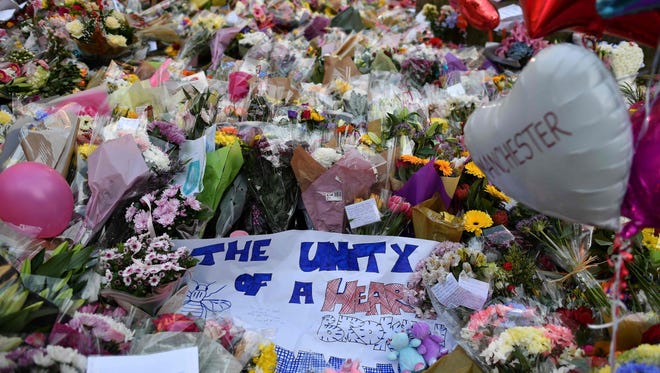ISIS claimed responsibility for Manchester bombing. What does it mean?
The Islamic State, one of the world’s deadliest terrorist groups, was quick to claim responsibility for Monday night’s suicide bombing in at an Ariana Grande concert in Manchester, England, that killed 22 people and injured dozens.
The Islamic State claims responsibility for many global attacks, so how do we know its statement is valid?

Q. Is there evidence that the Islamic State had a role in the attack?
A. The level of sophistication in carrying out the attack would suggest the bomber, Salman Abedi, 22, may have received training in bombmaking, reconnaissance and other techniques. “This person appears to have the know-how, training and skill set to conduct a solo suicide attack with quite a bit of sophistication,” said Patrick Johnston, an analyst at RAND Corp. Abedi traveled to Syria and Libya prior to the attack. British authorities are still investigating the attack and attempting to determine what external support, if any, he may have had. British authorities have not determined what, if any, link exists between the attacker and the Islamic State or any other terror group.
Q. What is the difference between an attack inspired by the Islamic State or one planned and directed by the terrorist group?
A. Many cruder incidents, such as the truck attack in Nice, France, in July 2016 involve terrorists who have been radicalized or inspired by organizations such as the Islamic State. That doesn’t mean they aren’t deadly. The truck attack in Nice killed 86 people celebrating Bastille Day. The Islamic State, also known as ISIS, claimed responsibility for the attack, but French authorities found no links between the driver, Mohamed Lahouaiej Bouhlel, and the group. The Islamic State will often craft statements differently when it didn’t have a direct role. The terrorist group said Bouhel was a “soldier of the Islamic State” who carried out the attack in response to calls from ISIS to target Western nations. ISIS will often claim responsibility for an attack sooner if it had a more direct role, Johnston said.
Q. How do we know ISIS is making the claim?
A. The Islamic State has a sophisticated propaganda arm that uses known media channels to get its message out. The group is operating about 150 media channels on the encrypted messaging app Telegram, according to Laith Alkhouri, director of research at Flashpoint, a research group. Any attempt to wrongly attribute something to the Islamic State is often called out by the group’s online followers. That "crowdsourcing" helps provides a level of confidence that the statements are coming from the Islamic State.
Q. Have the military offensives in Iraq and Syria hurt ISIS’ ability to produce propaganda and attract recruits?
The Islamic State is unquestionably losing ground in both countries. The Pentagon has said the loss of territory will hurt the Islamic State’s ability to recruit followers from around the world and inspire attacks. But it also acknowledges ISIS is resilient and will be able to conduct terrorist attacks even as it loses territory. Evan Kohlmann, chief innovation officer at Flashpoint, said the amount of propaganda from ISIS has declined in recent months, as fighters have been killed, but the group is far from being eliminated. Alkhouri said ISIS lately has encouraged followers to launch attacks against Western targets to take pressure off fighters in Mosul, Iraq’s second-largest city, where U.S.-backed forces are pushing the militants out of the remaining neighborhoods.
Read more:
Manchester bomber's father, brother arrested in Tripoli
Neighbors of Manchester bomber Salman Abedi recall him as abrasive, anti-social